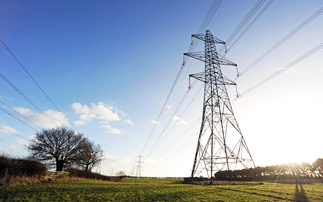NatWest Group Energy Manager, Richard Eaton, offers the inside track on how the banking giant is working to deliver on its ambitious climate goals across its operations
Last Friday, NatWest Group became a signatory to the World Green Building Council's Net Zero Carbon Buildings Commitment for the bank's global property portfolio. This commitment builds on the bank's existing targets to be Net Zero Carbon for its directly-controlled operations in 2020 and Climate Positive by 2025, through a further 25 per cent reduction in carbon emissions. Collectively it is hoped that these commitments and targets will help to demonstrate that NatWest Group is the leading bank in fighting the climate challenge and will use its experience to inspire other organisations and its customers to do the same.
NatWest Group have made large reductions in its own operational carbon footprint and have reduced emissions by 61 per cent between 2015 and 2019. This was achieved through a combination of doing business with less travel, less paper, reducing waste, and using less water, electricity and gas in its buildings.
NatWest Group was also the first bank, globally, to sign up to all three of The Climate Group's carbon reduction initiatives in 2019 to:
- Install electric vehicle charging infrastructure in more than 600 spaces across our UK & RoI portfolio by 2030 (EV100).
- Upgrade our job car fleet of around 300 vehicles to electric models by 2025 (EV100).
- Reduce our energy consumption 40 per cent by 2025 against its 2015 baseline (EP100).
The bank recognises that its largest environmental impact comes from the emissions arising from the offices, retail branches, and other properties that it owns and occupies. The bank's rationale behind seeking to be an early adopter of the WGBC's Net Zero Carbon Buildings Commitment is that it provides an overarching ambition and framework to support the bank's existing decarbonisation efforts generally, as well as targeted efforts relating to RE100, EV100, and EP100.
The bank also acknowledges the unique role it plays in advocating for climate action through its lending practices and the financial products it offers. The WGBC's and the bank's advocacy goals are well aligned and as a signatory to the NZCB Commitment, the bank will continue to engage its corporate customers, professional networks and stakeholders regarding climate action.
The 2020 year in review
In 2020 NatWest Group's emissions have fallen by an estimated 35 per cent compared to 2019. This exceeded all expectations and was largely due to the Covid-19 restrictions, which saw energy consumption in our buildings fall by up to 20 per cent due to closures and reduced occupancy and/or operating hours. During the first half of our reporting year we implemented significant travel restrictions. This was followed by a total ban on travel when Covid-19 travel restrictions were implemented. This saw emissions from domestic and international travel fall sharply.
With 50,000 colleagues working from home until at least April 2021, there was an awareness that some of the carbon emissions saved from staff not occupying the buildings had been transferred to colleagues' homes. As there was no industry-standard methodology on how to calculate them, the bank approached consultancy EcoAct, who were getting the same question asked by several of their other clients. NatWest Group agreed to work together with Lloyds Banking Group and EcoAct on a methodology whitepaper. This open source methodology on calculating working from home emissions can be downloaded from the EcoAct website.
As the 'new ways of working' emerge for the bank for 2021 and beyond, the bank remains committed to emissions reductions that build on those seen in 2020 as part of a green recovery out of the Covid-19 pandemic; and its ambition of becoming Climate Positive by 2025.
Richard Eaton is NatWest Group Energy Manager.






